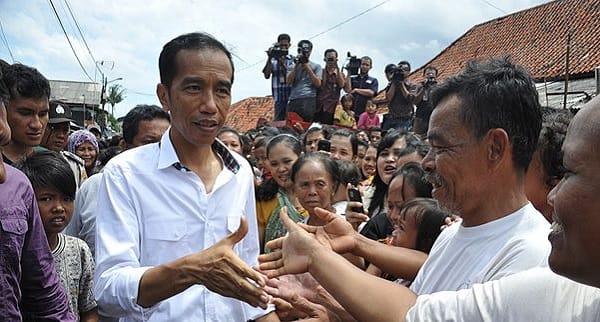At the APEC meeting in April, Indonesia’s President Joko Widodo (popularly known as Jokowi) promised lucrative investment prospects in the region’s largest market. Yet, at the Asia-Africa Summit held in Bandung that same month, Jokowi’s tone shifted, urging emerging markets to avoid domination by foreign economic interests. In light of these developments, what might account for Jokowi’s mixed signals to international investors?
Investor concerns are presently heightened as gaps between Jokowi’s development rhetoric and prevailing business conditions’ become more evident. Policy uncertainties persist in Indonesia’s economic environment. The previous administration updated the ‘Negative Investment List’ in 2014, specifying sectors in energy and information and Communication Technology (ICT) which also currently remain closed off to foreign investments. Also, Article 50 of the 2014 Trade Law allows the state to somewhat arbitrarily impose restrictions to protect government interests, while Articles 67-72 allow restrictions as a measure to preserve domestic demand. Such ambiguous legal frameworks are likely to stall Indonesia’s desired industrial take-off. It can be expected that some potential investors have adopted a ‘wait and see approach,’ hoping for a firmer commitment from Jokowi in favour of more transparent policies.
Jokowi’s apparent inability to convey his government’s position relative to the previous administration’s inward posture may be attributed to his reform agenda and underlying dynamics in the current political environment.
First, Jokowi seems to be pursuing a conditional form of openness towards foreign investors. On one hand, he strives to secure greater control over the country’s natural resources, exemplified by his decision to enforce mineral export bans under the 2009 Mining Law. By vowing to safeguard national interests he also might allude to the need to protect domestic industries from competition.
On the other hand, Jokowi clearly recognizes the importance of FDI in kick-starting Indonesia’s infrastructure and production drive, and has promised to simplify conditions for investments in these areas. Since taking over office, he has reiterated expectations that Indonesia should be a top regional investment destination in view of the fast-approaching ASEAN Economic Community (AEC).
Second, competing forces in Indonesia’s factional and decentralized political landscape hinder Jokowi’s efforts to court foreign investors therefore attributing to mixed signals that he has sent potential investors. The Prabowo-led Red-and-White opposition coalition remains a major actor in of the national legislature. As the bloc is capable of impeding Jokowi’s policy reforms, Jokowi must devote a considerable amount of his political resources to alliance-formation and concession-making. Bills passed often grant local authorities a high level of discretion, allowing them to implement laws according to their interests. This has been evidenced by the uneven application of business licensing regulations at the regional level. In this scenario, leaders may face stronger incentives to bend to local lobbying pressure rather than adhere to national standards. Overall, question marks surround the Jokowi government’s ability to effectively implement its spending plans and enact deeper reforms to improve the country’s business climate.
In the near term, Jokowi’s primary resolve should be to communicate a clear stance on his government’s official position towards foreign capital entry. This will help potential investors understand the boundaries of their operations and the extent to which their ventures will be facilitated by state policy. This will have a positive impact on Indonesia’s long term economic growth.
Ultimately, Jokowi’s endeavour to attract foreign investments and catalyse long-term growth rests on his ability to harmonise elite interests with those of his policy programme. Progress on this front will inevitably be slow due to the varying levels of interest present. Nonetheless, there are reasons for cautious optimism. Public support for Jokowi’s governance and growth plans remains buoyant, and a nexus between social, political and business interests is emerging through increased mobility across elite and non-elite social groupings.
Sources
Spicing up growth, The Economist [9 May 2015]
Economic reform in Jokowi’s Indonesia [East Asia Forum, 20 May 2015]
European Commission Market Access Database: Laws and Transparency – Industry law and Trade Law (Indonesia)
Photo Credit: Wikimedia Commons




